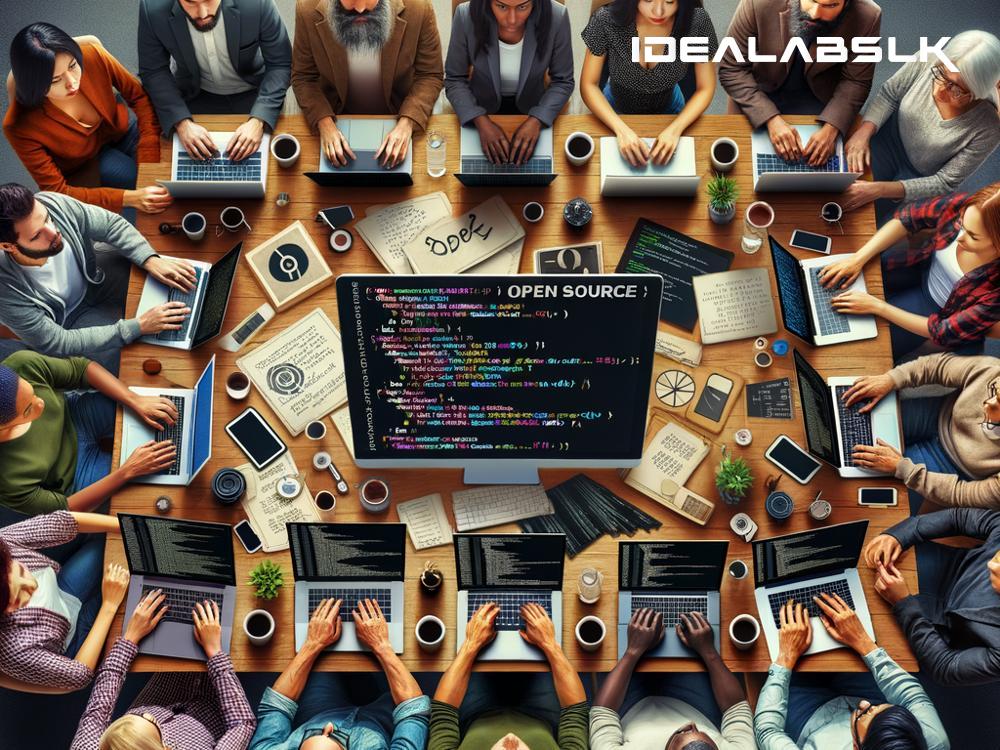Open source may sound like a technical term that's difficult to grasp, but it's actually a pretty simple idea with a powerful impact on how we use technology today. In this blog post, we'll dive into what open source is, its importance, and how it plays a crucial role in our digital lives, all without getting tangled in technical jargon.
So, What is Open Source?
Imagine you've written a story. Typically, you might keep this story to yourself or share it with a few friends. But instead, you decide to publish it online and tell everyone that they're free to change the story, add characters, or modify the plot, as long as they share their versions too. This is the essence of open source, but instead of stories, we're talking about software – the codes and programs that run our computers, phones, and a lot of other gadgets we use every day.
In the open source world, instead of keeping the software code a secret, developers share it openly on the internet. This means anyone can look at the code, learn how it works, make improvements, and share those improvements with others. It's a collaborative effort, much like a global, digital brainstorming session where everyone's invited.
Why is Open Source Important?
-
Innovation and Collaboration: When people from around the globe can work on the same project, it spices up innovation. Diverse ideas come together, leading to better and more creative solutions. Whether it's fixing bugs or adding new features, open source projects often evolve much faster than their closed source counterparts.
-
Learning and Education: For those eager to learn programming or understand how software works, open source is a treasure trove. It's like having an open book for software where you can study real-world projects, tinker with them, and see how changes affect the outcome.
-
Security and Transparency: With numerous eyes scrutinizing the code, vulnerabilities can be spotted and fixed swiftly, making open source software potentially more secure. Plus, since everything is out in the open, users can trust the software more, knowing there's no hidden agenda.
-
Cost-Efficiency: Open source software is often free, or much less expensive than proprietary alternatives. This lowers the barrier for entry, allowing smaller companies, educational institutions, and individuals to access powerful software without breaking the bank.
How Open Source Shapes Our Digital World
You might be surprised to learn just how much open source impacts our daily lives. Here are a few examples:
-
Operating Systems and Web Browsers: Ever heard of Linux? It powers everything from the server hosting your favorite website to millions of Android smartphones. Firefox and Chromium are open source web browsers that offer users more choice and control.
-
Programming Languages and Tools: Many of the languages developers use to create the apps and services you love, like Python, are open source. Tools like Git, which helps teams collaborate on code, are also open source projects.
-
Educational Platforms: Open source platforms like Moodle give educational institutions the ability to create online learning environments, making education more accessible to everyone.
The Challenges and How They're Being Tackled
Despite its many benefits, open source isn't without its challenges. Funding, for instance, can be a hurdle since projects mainly rely on donations or volunteer work. However, more companies are recognizing the value of open source and are contributing financially or by allowing their employees to work on projects.
Another challenge is ensuring that contributions are of high quality and that projects remain secure as they grow. To tackle this, most open source projects have maintainers or core teams responsible for overseeing contributions and ensuring that best practices are followed.
In conclusion, open source is more than just a way to develop software; it's a philosophy that promotes collaboration, transparency, and accessibility. By breaking down barriers, it not only propels technological innovation forward but also democratizes access to technology. Whether you're a developer, a student, or just someone who uses technology daily, open source plays a significant role in shaping the digital environment around us, making our interactions with technology better, safer, and more inclusive.

